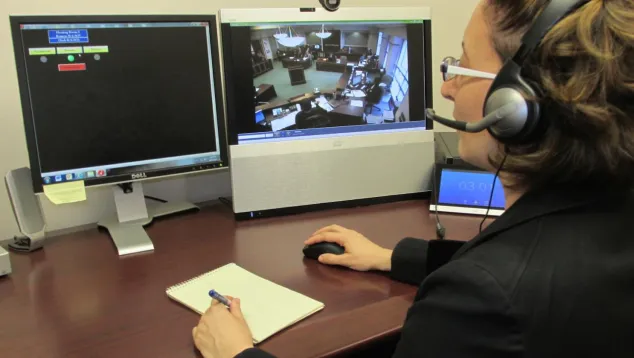Access & fairness
Equipping courts with scalable solutions, guidance and resources to ensure equal justice for all and accessible court services.

Ensuring justice for all
Our "Justice for All" guide offers a framework to help state courts and their community partners address unmet civil justice needs. This comprehensive roadmap includes tools and strategies to build collaborative systems that better serve every community.
Increasing access to services

Language access
Assisting courts and prospective court interpreters to expand and build language access programs.

Self-represented litigants
Sharing new approaches to assist courts with the growing number of users without legal counsel.

Rural justice
Supporting courts and justice stakeholders with creative solutions and strong networks to meet the unique needs of rural communities.

Adopting national reforms to ensure equal justice for all
Understand how courts are leading reforms that impact individuals and communities to achieve fair access for all.

Expanding court accessibility
Ensuring people with disabilities have access to the courts improves the court system for all court users and improves public trust and confidence in the courts.
Don't miss out on the latest in access to justice
Join our mailing list for updates delivered straight to your inbox.

Understanding record relief
Twenty to 30 million people in the U.S. are eligible for record relief, yet only 10-20% apply, and even fewer receive it. Our guide outlines practical steps courts can take to streamline record relief, expand access to justice, and improve opportunities for jobs and housing.

Enhancing access to justice with Tiny Chats
Watch past episodes of Tiny Chats for bite-sized, annotated talks with guests from the across the country who are passionate about access to justice topics and court operations.
Our latest resources on access & fairness
How to establish (and maintain) navigator program funding, part 1
Learn from established court navigator programs about the realities of funding and sustainability and gain practical insights into budgeting, resource allocation, and strategies for building a financially viable program.
Data Dives: AI solutions for courts to address the digital divide
Learn about NCSC's new initiative that will use AI solutions to address long-standing structural challenges that limit efficiency, accessibility, and service quality in rural courts.
Digital accessibility & the courts
Learn how three states have made court websites and forms digitally accessible and planned for accessibility going forward in advance of the federal deadline for state and local government digital accessibility in April 2026.
Tap into our expertise
Our team brings a variety of experience related to access and fairness activities. We can develop custom solutions to meet your unique court and community needs.
Understanding public perception of courts
Our annual State of the State Courts public opinion poll assesses confidence in state courts, emerging trends, and opportunities for judicial innovation. This year's survey gauged sentiment on topics related to access and fairness, AI, judicial security, and legal education.









